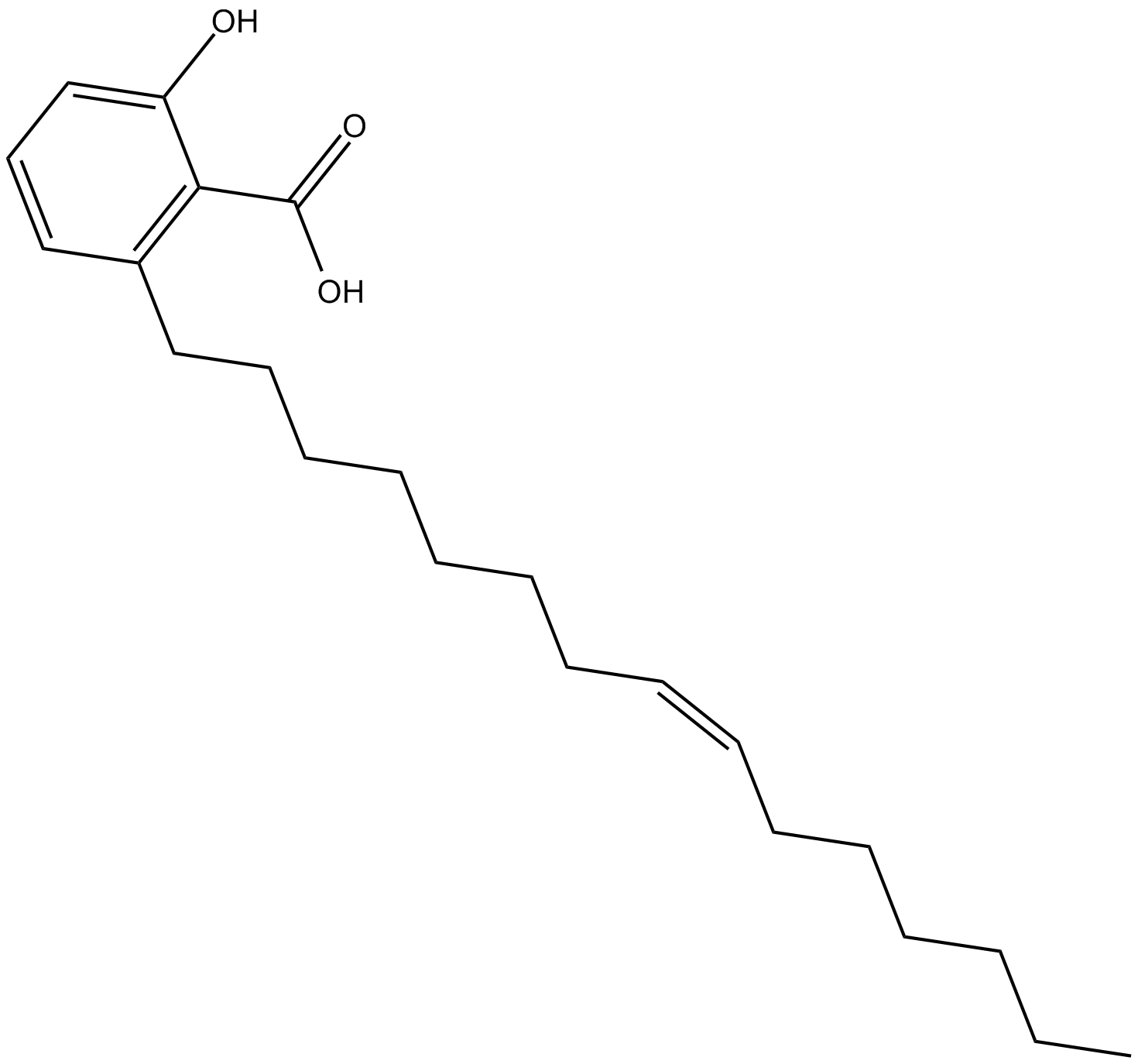Ginkgolic Acid C15:1 (Synonyms: Anacardic Acid 15:1,Ginkgolic Acid I) |
| Catalog No.GC10134 |
Ginkgolic Acid C15:1은 시험관 내 분석에서 3.0 μM의 IC50으로 SUMOylation을 억제하는 천연 화합물입니다.
Products are for research use only. Not for human use. We do not sell to patients.

Cas No.: 22910-60-7
Sample solution is provided at 25 µL, 10mM.
Ginkgolic acid is an alkylphenol derivative that causes allergic skin inflammation. IC50 values of ginkgolic acid against the SUMOylation of RanGAP1-C2 are 3.0 μM. Ginkgolic Acid, a Major Component of Ginkgo biloba Extract, inhibited SUMOylation in vitro and in vivo [1].
The cytotoxicity of ginkgolic acid (15:1) in primary rat hepatocytes was lower than in HepG2 cells. Ginkgolic acid (15:1) was demonstrated less cytotoxicity in four-day-cultured primary rat hepatocytes than in 20-h cultured ones. Co-incubation with selective CYP inhibitors, α-naphthoflavone and ketoconazole, could decrease the cytotoxicity of ginkgolic acid (15:1) in primary rat hepatocytes. In agreement, pretreatment with selective CYP inducers, β-naphthoflavone and rifampin, could increase the cytotoxicity of ginkgolic acid (15:1) in HepG2 cells [2]. Ginkgolic acid inhibited the growth of tumorogenic cell lines in a dose- and time-dependent manner. Tumor cells were treated with GA for 72 h, 70.53 ± 4.54% Hep-2 and 63.5 ± 7.2% Tca8113 cells were retarded at GO/G1 phase, and the percentage of apoptosis was 40.4 ± 1.58 and 38.4 ± 1.7%, respectively [3]. In 293T cells expressing Flag-tagged SUMO, ginkgolic Acid Inhibited SUMOylation. Ginkgolic acid impaired SUMOylation by blocking the formation of an E1-SUMO thioester complex, by directly binding to E1 [1].
References:
[1] Fukuda I, Ito A, Hirai G, et al. Ginkgolic acid inhibits protein SUMOylation by blocking formation of the E1-SUMO intermediate[J]. Chemistry & biology, 2009, 16(2): 133-140.
[2] Liu Z H, Zeng S. Cytotoxicity of ginkgolic acid in HepG2 cells and primary rat hepatocytes[J]. Toxicology letters, 2009, 187(3): 131-136.
[3] Zhou C, Li X, Du W, et al. Antitumor effects of ginkgolic acid in human cancer cell occur via cell cycle arrest and decrease the Bcl-2/Bax ratio to induce apoptosis[J]. Chemotherapy, 2010, 56(5): 393-402.
Average Rating: 5 (Based on Reviews and 40 reference(s) in Google Scholar.)
GLPBIO products are for RESEARCH USE ONLY. Please make sure your review or question is research based.
Required fields are marked with *




















